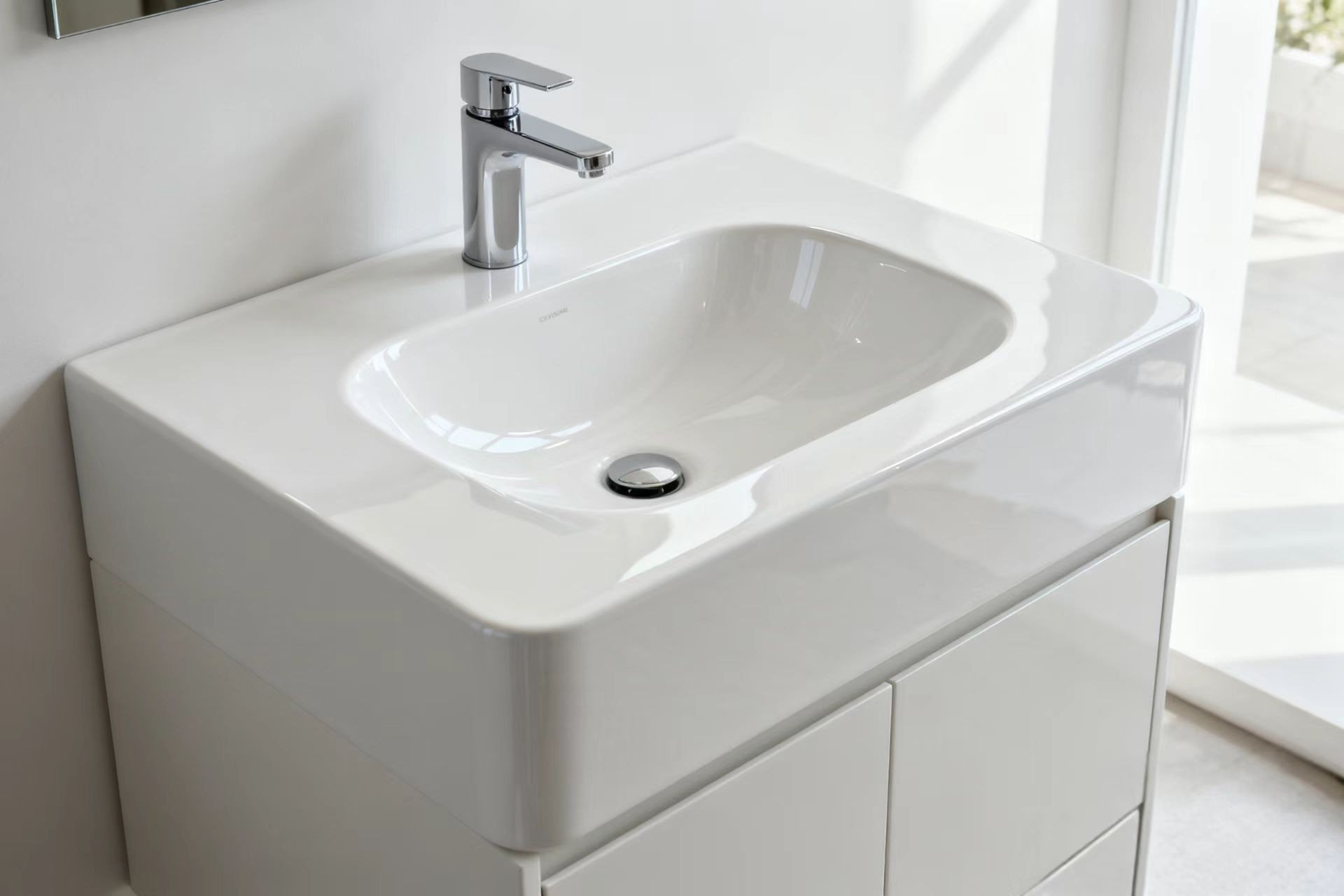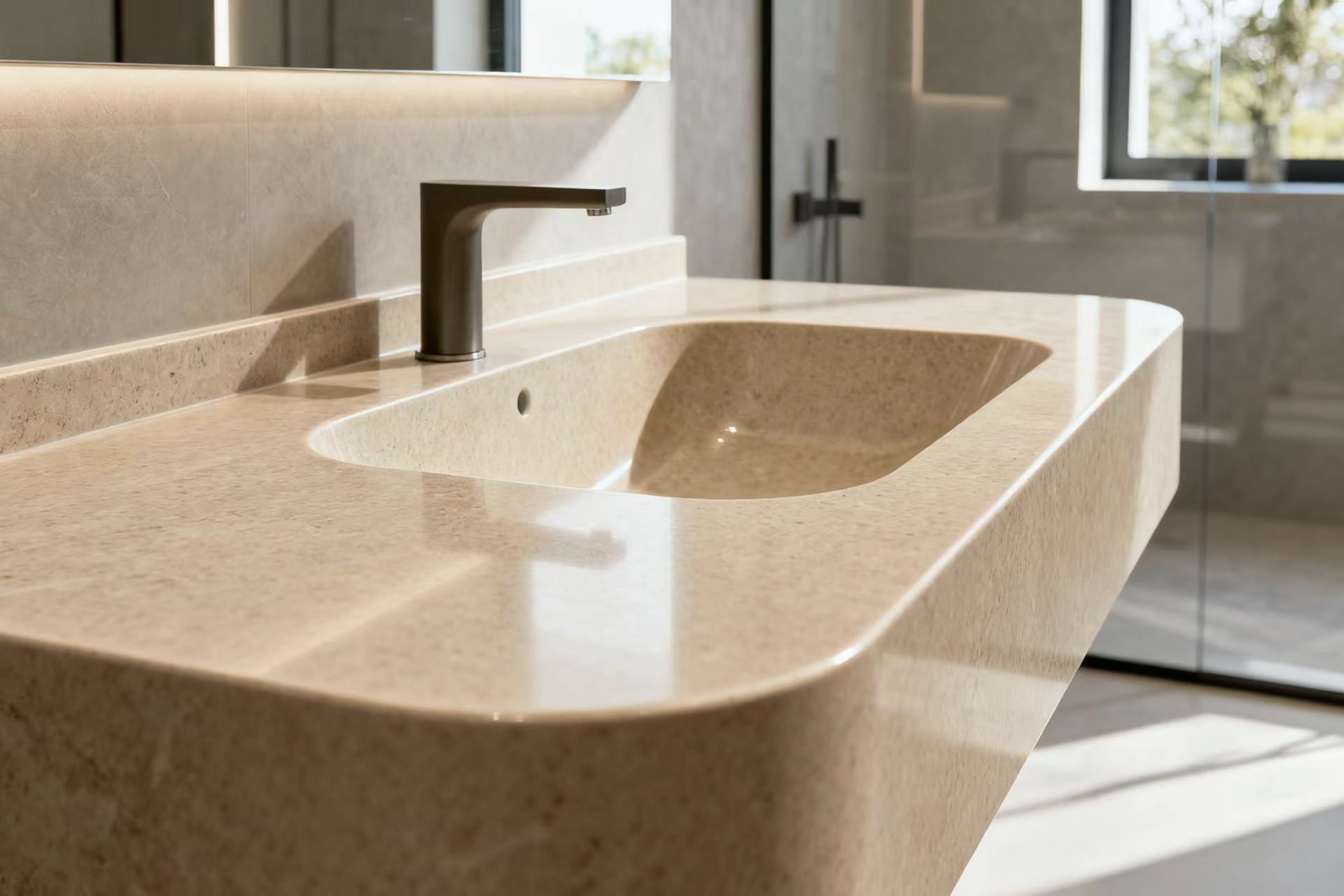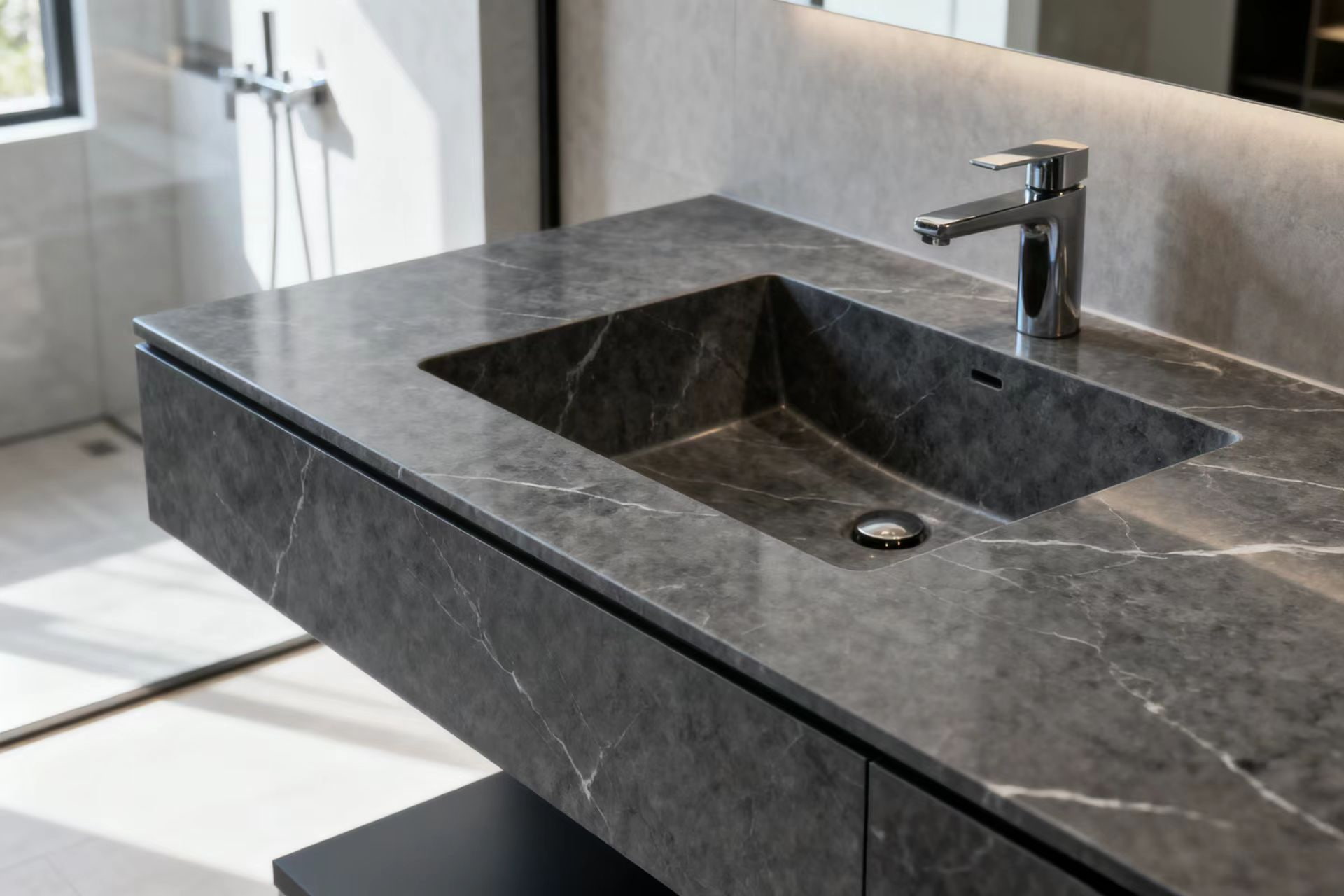Tel : +8613285927168 Email : sales@molibon.com
-
Email : sales@molibon.com
-
Phone : +8613285927168
Email : sales@molibon.com
Phone : +8613285927168
Tel : +8613285927168 Email : sales@molibon.com
Choosing the right material for your bathroom countertop is very important when home renovations. Currently, most homes use ceramic, artificial stone, and sintered stone. Which of these three materials is the most effective? Which is recommended for bathroom countertop renovations?
Additionally, the countertop installation process requires careful attention to joints and fastenings. High-quality glue, such as Molibon two part epoxy adhesive plays a key role in ensuring the stability and aesthetics of your countertop. This article will provide an in-depth understanding of how to choose the right countertop material and introduce practical applications of structural epoxy adhesive for bathroom countertops.
Ceramic Countertops
Many families tend to choose ceramic bathroom cabinets when renovating, often using a single-piece ceramic sink and countertop.
Although ceramic sinks are mostly formed in one piece with fewer joints, they still require the assistance of high-performance ceramic basin adhesive when they are repaired or need to be combined with other materials for installation. Molibon epoxy stone glue can provide a strong and reliable bonding effect for ceramic seamless basins.
Advantages of ceramic basins:
(1) High cost performance: Affordable and widely available;
(2) Excellent performance: High hardness, wear resistance, high temperature resistance, fire resistance, waterproof and moisture-proof;
(3) Smooth and dense surface: Strong anti-fouling ability, easy to clean and maintain.
Disadvantages of ceramic basins:
(1) Relatively simple shape and style: Due to the use of mold firing, the appearance is mostly bright white, the style is repeated, and it is difficult to customize;
(2) Poor impact resistance: They are easily broken by impact with heavy or hard objects.
(Pro tips: If cracking occurs accidentally, you can use high bonding marble epoxy glue to repair it. Its high strength and waterproof properties can remain stable even in a humid bathroom environment, effectively extending the service life of the ceramic seamless basin.)

Artificial Stone Basins
Artificial stone (such as artificial quartz stone, artificial marble, etc.) is made by mixing and pressing stone powder, resin and other raw materials. The quality of its countertop splicing directly affects the user experience. Using epoxy countertop adhesive can achieve seamless splicing and avoid stains in the seams. Compared with ceramics with relatively single colors, artificial stone can better restore the texture of natural stone and has a richer color selection. Molibon stone epoxy adhesive provides customizable color matching services, which can accurately match the color of the stone, achieve seamless splicing, effectively maintain the consistency of the texture to enhance the overall aesthetics of the countertop.
Advantages of artificial stone basins:
(1) Wear and impact resistance: The artificial stone has a high hardness, it is not easy to break and has a long service life;
(2) Strong plasticity in shape: The artificial stone countertops support bonding and splicing to achieve more diverse design shapes.
Disadvantages of stone basins:
(1) Easy to age: After long-term use, the bonding may fail and the countertop may fade.
(2) Environmental and price factors: Some low-quality artificial stones use adhesives containing pollutants, while high-quality products are usually more expensive.
(Pro tips: We recommend choosing high-quality artificial stone and using environmentally friendly, odorless, and age-resistant epoxy concrete adhesive for installation and splicing. Molibon adhesive for artificial stone offers stable bonding and excellent ageing resistance, ensuring long-term strength in artificial stone joints and preventing cracking or discoloration due to adhesive degradation.)

Sintered Stone Countertops
The sintered stone is mainly composed of natural stone powder, clay, silica and other inorganic materials. They are formed under high pressure by tens of thousands of tons of presses, then sintered in high-temperature kilns, and produced through multiple processes such as digital inkjet, precision cutting, and fine edge grinding.
Sintered stone countertops are extremely hard, but the performance requirements of the glue during the splicing process are extremely strict.
As an upgraded product of ceramic tiles, sintered stone not only have all the advantages of ceramic tiles, but also have better performance:
(1) Texture and beauty: highly restore the texture of natural stone,
(2) Ultra-high hardness: dense structure, wear-resistant and impact-resistant, not easy to be scratched or damaged;
(3) Excellent Water Resistance: Its ultra-low water absorption rate prevents deformation even in a damp conditions.
What are the drawbacks of sintered stone countertops? The main disadvantage is the cost — especially for high-quality sintered stone.
But by choosing a good slab and professionally installed with Molibon epoxy resin stone adhesive, you'll get the most out of your countertop. This combination ensures better durability and performance, making it a smart long-term investment.

Leave A Message
Scan to Wechat :
